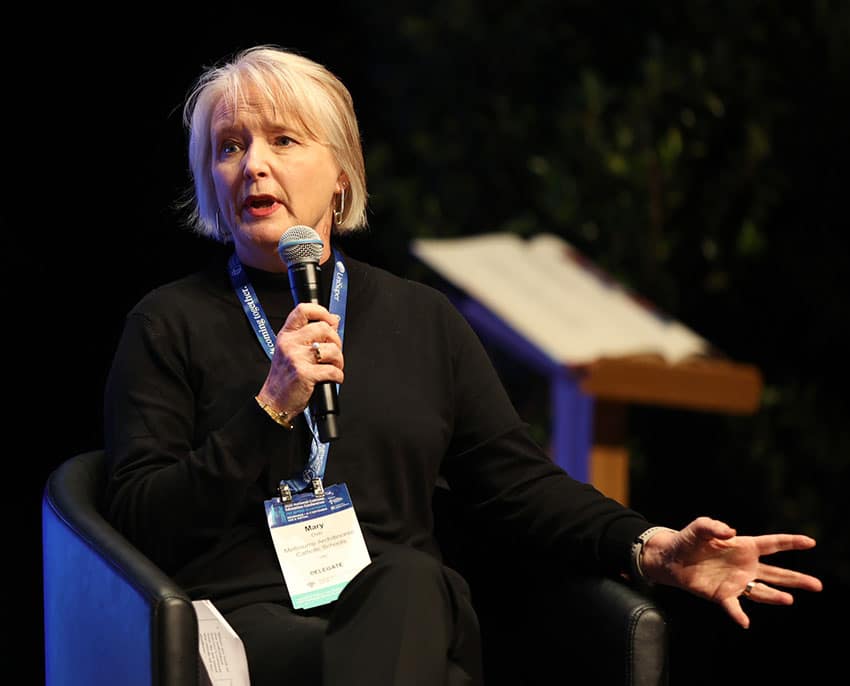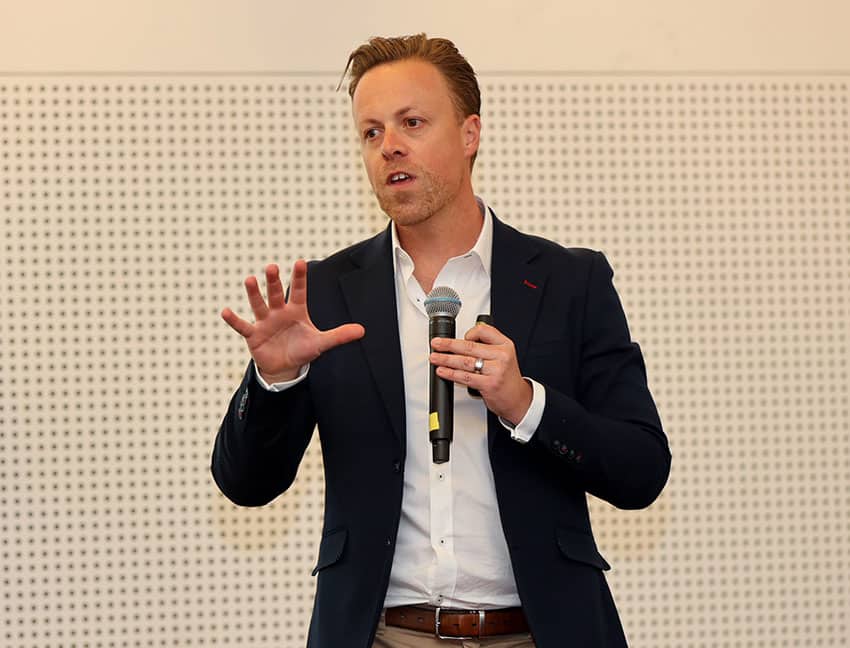
A panel at the 2022 National Catholic Education Conference addressed the rise in mental health issues plaguing students since the end of the pandemic.
Dr Simon Breakspear, Policy Advisor at the UNSW Gonski Institute said that cases of anxiety and depression were increasing in Catholic secondary schools.
“When I was first in education, I was a Year 12 coordinator in Sydney and ten per cent of my 220 students in that year group were diagnosed with an anxiety, depression disorder or both. Friends who are still in practice now say its two fold,” Dr Breakspear said.
Director of Learning and Regional Services for Melbourne Archdiocese Catholic Schools, Dr Mary Oski expressed concern that the rising number of cases could place an increased psychological burden upon teachers.

Rise impacts teachers too
“Teachers took on a lot of health responsibilities during that time, we were checking everyone had their masks on, vaccination levels, RAT testing, providing really tough messages to parents and students and staff at the time, so the last thing I want them feeling is responsible for mental health issues, which have been going on for a long time,” Dr Oski said.
While exacerbated by the pandemic, modern life had already seen the strain surging amongst the population.
The 2019 Royal Australian College of General Practitioners Health of the Nation Report, released before the pandemic, found that depression, mood disorders and anxiety had overtaken the common cold as the number one reason people consulted their GPs, something Dr Breakspear believes can partly be attributed to a breakdown in human relationships.
Relationships a big help
“When I walk past the bus stop I see eight kids with their heads buried in their phones. I think what were we doing back then? We were talking, introducing ourselves to people from other schools, kicking people’s bags away, doing something. We were interacting, we were doing the bonds of human interaction. Making human relationships,” Dr Breakspear said.
“The best way to get ready for the future, which is unknown is to focus on things which have been relevant for the longest time in the past, which is relationships. We can’t ask our educators to add a whole set of new programs, when it comes, we go together and we confront that.”
Archbishop Fisher confirmed that mental health was number one concern of young people.
“Every time we have done a consultation with young adults and asked them their biggest concerns, mental health is number one every time. Anxiety disorders, depression and the rest.”
A big help: relationship with God
Archbishop Fisher, who is also the Chair of the Bishop’s Commission for Catholic Education, believes that while providing the appropriate medical and professional support is essential, arresting the decline in mental health could be bolstered by a better relationship with God.
“I think one of the great things Catholic schools seek to offer our young people is a relationship with God that loves them no matter what. And that doesn’t make you immune to mental health challenges, but to know you are deeply loved from all eternity to all eternity has to be a help when you are navigating the challenges all the young people have in today’s world.”
“To know you have a supportive community that is there for you, that care for you as well, that there is a creator that cares for you, I think the big part of the gift of Catholic education can be and should be for young people that it is helping their mental health and it should underpin all the other kind of learning issues.”
Related
